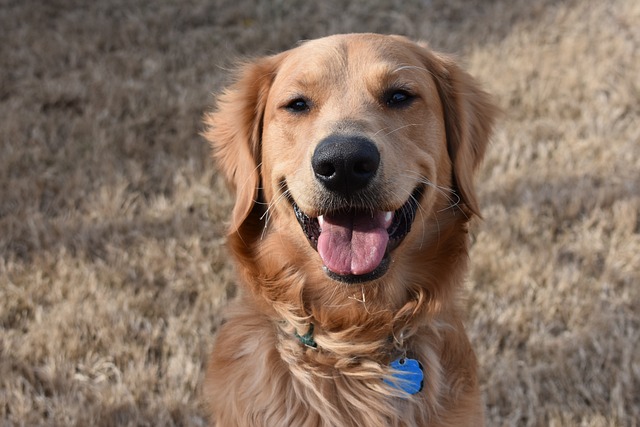
How do i train my dog to be obedient?
Watching your dog dart across the park ignoring your calls isn’t just frustrating—it can put them at risk near busy streets or public spaces.
Start with a toy your Golden Retriever already loves—maybe a soft frisbee or rubber ball they nudge when you’re on the couch. Toss it just a few feet first; Goldens are eager to please, but too much distance early on can make them lose focus. When they pick it up, clap and use a happy tone to say “Bring it!”—keep the praise loud enough to encourage them, but not so loud it scares them off. If they drop it halfway, walk over together to grab it, then try again—never scold, since that makes them associate fetch with negativity.
Check your local laws before training in public parks; some areas require dogs to be on leashes until they’re fully trained, even for fetch. A 6-foot leash works well for early sessions—clip it to their harness (not collar, to avoid neck strain) so you can guide them gently if they run off. Bring small, soft treats too—reward them right when they hand over the toy, so they link “giving back” to something good. Avoid hard treats that could break their teeth, especially if your Golden is still a puppy with sensitive gums.
 Use short training sessions—10 to 15 minutes max, two or three times a day. Goldens have lots of energy, but their attention spans aren’t long; stopping while they’re still excited keeps them wanting more. Mix up the toys sometimes—try a fabric rope toy one day and a squeaky ball the next—to keep them interested. If they seem bored, take a break and play a quick game of tug instead, then come back to fetch later. Remember, every dog learns at their own pace; a puppy might take a few weeks, while an older Golden could pick it up in a few days.
Use short training sessions—10 to 15 minutes max, two or three times a day. Goldens have lots of energy, but their attention spans aren’t long; stopping while they’re still excited keeps them wanting more. Mix up the toys sometimes—try a fabric rope toy one day and a squeaky ball the next—to keep them interested. If they seem bored, take a break and play a quick game of tug instead, then come back to fetch later. Remember, every dog learns at their own pace; a puppy might take a few weeks, while an older Golden could pick it up in a few days.
Always end fetch time with a calm activity, like walking around the yard or sitting together for pets. This helps your Golden wind down and teaches them that fetch has a clear end. If you’re training at home, make sure the area is safe—move any small objects they could chew on, and close doors to rooms where they might hide the toy. Never chase them if they run off with the toy; that turns it into a game of “catch me,” which makes training harder. Instead, stand still and call their name softly—most Goldens will come back when they realize you’re not joining the chase.
Training your Golden Retriever to fetch isn’t just about having fun—it builds trust and helps them burn off energy, which keeps them calm at home. Once they master it, you can take them to dog parks (always following local leash laws) where they can play fetch with other dogs, too. Just keep an eye on them—some Goldens get so excited they forget to drink water, so bring a bowl along. With patience and consistent praise, fetch will become one of your favorite ways to bond with your furry friend, and they’ll look forward to it every day.

Watching your dog dart across the park ignoring your calls isn’t just frustrating—it can put them at risk near busy streets or public spaces.

New puppy owners often find themselves rushing to clean up accidents before they set in, and that’s where puppy pad training becomes a game-changer.

If you've noticed your dog's waistline disappearing and your veterinarian has mentioned those few extra pounds, your first instinct might be to simply reduce the amount of food in their bowl.

Training a dog to use a designated spot indoors isn’t as daunting as many new owners fear, but it does take consistency and an understanding of your pet’s needs.

That moment of dread on a walk is all too familiar for many new dog owners. You see another dog approaching down the sidewalk of your neighborhood

If the sight of another dog on your neighborhood walk makes your heart sink as your own dog erupts into a frenzy of barking and lunging, you're not alone.